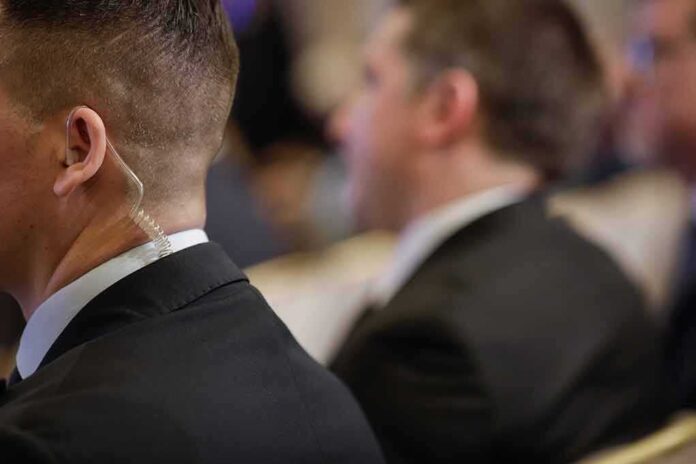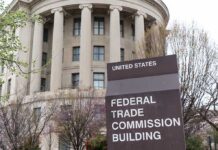
Abraham Bolden, the first Black Secret Service agent, reveals shocking testimony about fellow agents who were regularly drunk while protecting President Kennedy before his assassination.
Key Takeaways
- Abraham Bolden was personally hired by President Kennedy in 1961 as the first Black Secret Service agent on the presidential detail, facing severe racism including having a noose hung above his desk.
- Bolden testified that Secret Service agents were often intoxicated on duty, compromising presidential security, and ignored credible assassination threats in Chicago and Miami before Dallas.
- After reporting misconduct, Bolden was charged with bribery, convicted by an all-white jury despite a witness admitting to lying under pressure from prosecutors, and sentenced to six years in prison.
- President Biden pardoned Bolden in 2022, six decades after his conviction which Bolden maintained was retaliation for exposing the agency’s failures to protect Kennedy.
- Bolden’s congressional testimony included revelations about missing evidence and multiple shooter theories that challenge the official JFK assassination narrative.
A Historic Appointment Turns to Nightmare
In 1961, President John F. Kennedy made history by personally appointing Abraham Bolden as the first Black Secret Service agent to serve on a presidential detail. Bolden, now in his late 80s, recently delivered powerful testimony to Congress about his experiences and the circumstances surrounding Kennedy’s assassination. The appointment represented Kennedy’s commitment to civil rights, but quickly devolved into a nightmare of discrimination for Bolden. His white colleagues subjected him to racial slurs and intimidation tactics, including hanging a noose above his desk as a threatening message.
“On June 6, 1961, I walked into history. I was assigned to the White House detail in Washington, DC to assist in protecting the life of the president. And I never met a more human and fair-minded person than President Kennedy,” Stated Abraham Bolden, Former Secret Service Agent.
Exposing Dangerous Misconduct and Threats
During his congressional testimony, Bolden made shocking allegations about the conduct of Secret Service agents assigned to protect Kennedy. He reported that agents were frequently intoxicated while on duty, compromising the president’s security. Even more disturbing was Bolden’s claim that he overheard agents expressing unwillingness to protect Kennedy due to racial prejudice against the president’s civil rights stance. Bolden also testified about a credible assassination plot in Chicago that was allegedly dismissed by his superiors, which could have provided crucial warning signs before the Dallas tragedy.
“While some agents got the coveted spots inside the McCormick Place banquet room near the president, my assignment was to guard a basement restroom that had been set aside for Kennedy’s exclusive use.”
Bolden’s attempts to report these security lapses led to swift retaliation. His superiors, rather than addressing the security concerns, fabricated bribery charges against him. The case against Bolden was weak from the start – his first trial ended in a mistrial, and during the second trial, a key prosecution witness admitted to lying under pressure from the Deputy U.S. Attorney. Despite this admission, an all-white jury convicted Bolden, resulting in a six-year prison sentence that destroyed his Secret Service career and severely damaged his reputation.
A Decades-Long Fight for Justice
For over six decades, Bolden fought to clear his name and tell his story about the events surrounding Kennedy’s assassination. His book, “The Echo from Dealey Plaza,” details his experiences and alleges a cover-up following Kennedy’s death. Bolden’s claims include the possibility of multiple shooters in Dallas and missing evidence, including a Secret Service badge found at the scene that later disappeared from the official record. These revelations raise serious questions about the thoroughness of the Warren Commission investigation and the official narrative of Kennedy’s assassination.
“Very often, as you people know, justice takes a long time. Carry on, my brothers and sisters. Carry on this investigation. I truly thank you for giving me a chance to tell my story today because not too many years from now, the only thing in my pockets will be dirt. But the truth cannot die.”
Pardon and Vindication
Justice finally arrived for Bolden in 2022 when President Biden granted him a full pardon, acknowledging the injustice of his conviction. This pardon came after multiple unsuccessful attempts to secure clemency from previous presidents. Roosevelt Wilson, a longtime advocate for Bolden, had petitioned four different presidents without success before Biden finally acted. The pardon represents a significant vindication for Bolden, though it came late in his life after decades of fighting to restore his reputation and bring attention to the security failures that may have contributed to one of America’s most tragic events.
“I kept waiting for someone in D.C. with some guts to clear this man, and it never happened. I started with Bill Clinton, then George W. Bush and Barack Obama. I didn’t write about Trump because I knew it wouldn’t do any good. Then Biden,” Stated Roosevelt Wilson, Bolden Advocate.
Bolden’s testimony to Congress represents a crucial piece of the JFK assassination puzzle that had been missing for decades. His firsthand account of Secret Service negligence, including agents drinking on duty, ignoring credible threats, and potential involvement in covering up evidence, challenges the established narrative. While the full truth about Kennedy’s assassination may never be known, Bolden’s courage in coming forward despite severe personal consequences sheds light on institutional failures that may have contributed to one of the darkest days in American history.
























